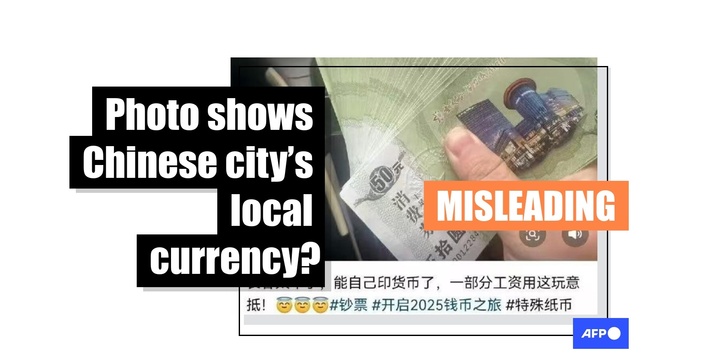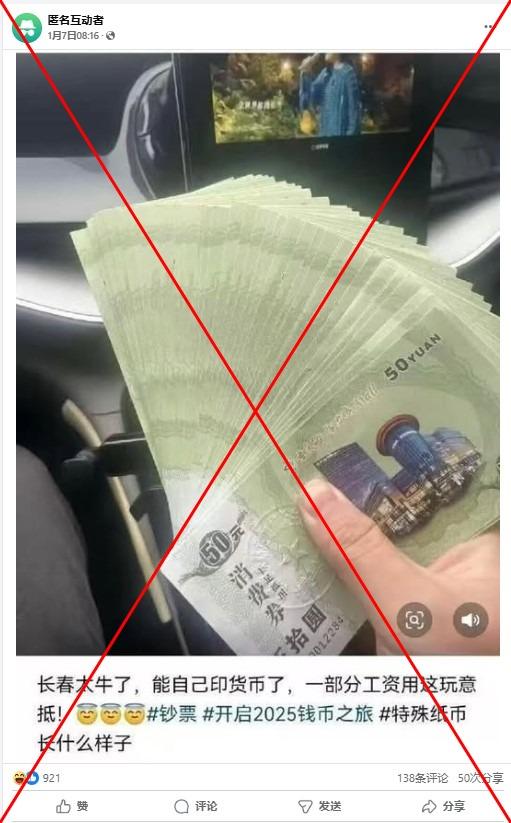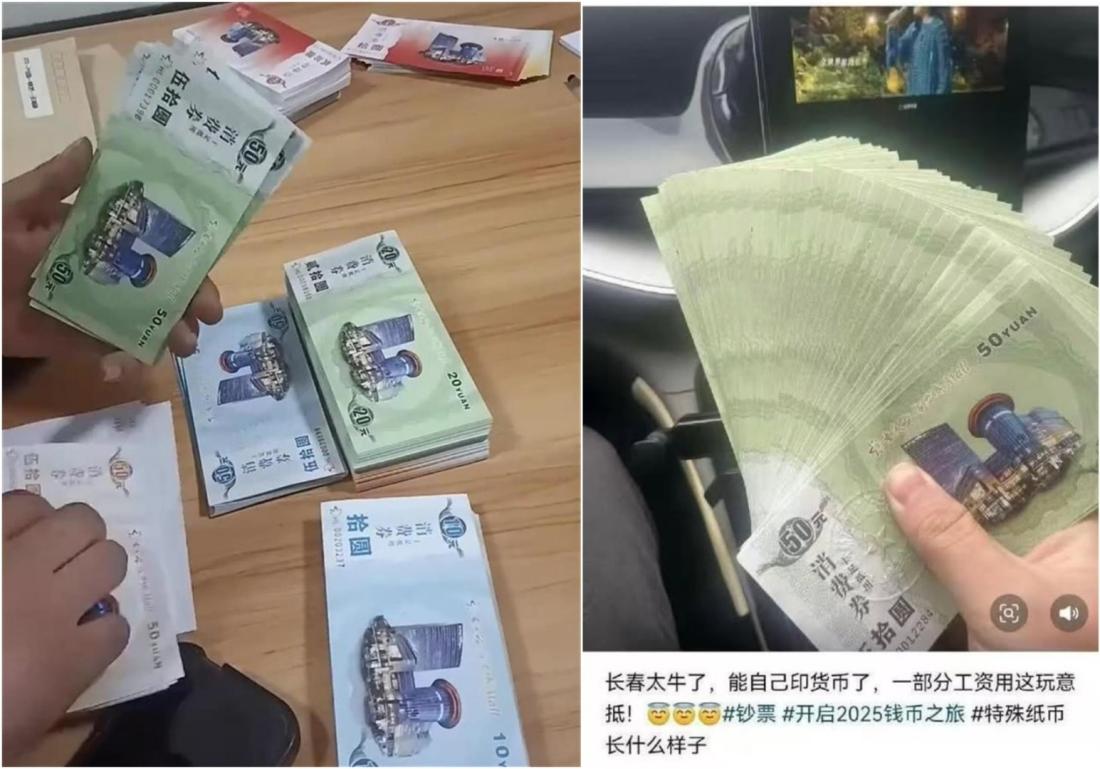
China unpaid wages case sparks misinformation on city's currency
- This article is more than one year old.
- Published on February 10, 2025 at 05:03
- 2 min read
- By Carina CHENG, AFP Hong Kong
A screenshot of the vouchers was shared on Chinese platform Xiaohongshu, known as RedNote in English, in a post that joked Changchun was "so awesome it can print its own currency" and that "part of workers' salaries can be paid with it".
The January 7 post -- which was later deleted -- showed a photo of a wad of vouchers valued at 50 yuan ($6.90) each.

Workers in several Chinese provinces -- including Henan, Hubei and Guangdong -- protested in the lead-up to Lunar New Year celebrations in January for their employers to settle unpaid salaries, according to a database maintained by rights group China Labour Bulletin (archived link).
China's top court ordered lower courts to prioritise hearings involving unpaid wages ahead of the holidays and penalise companies that fail to pay workers on time, according to state news agency Xinhua (archived link).
China has so far failed to fully rebound from the Covid-19 pandemic, with domestic spending mired in a slump and indebted local governments dragging on growth (archived link).
The photo spread on Facebook, X and China's version of TikTok Douyin, prompting mockery towards Changchun authorities.
"Changchun is independent now," one person commented.
"Grain, oil and pork ration vouchers may be introduced in the next stage," another appeared to joke.
'No pay for months'
However, AFP found photos of the same vouchers in articles about a Changchun real estate developer who reportedly dolled them out to staff as a form of payment.
The Dazhong Zhuoyue Holdings Group used the vouchers to pay employees' wages instead of cash, Chinese state-affiliated outlet Jimu News reported on January 6 (archive link).
Jimu published photos of vouchers for various amounts, including the 50-yuan vouchers seen in social media posts, which show the names of two of the developer's subsidiaries -- Chongqing Road Vitality City Mall and Dazhong Real Estate -- at the top.

State-run media outlet Chinese Business Daily published a notice from Dazhong Zhuoyue Holdings Group from December 30, 2024 which said the vouchers could be used to purchase goods and services at shopping malls run by the firm (archived link).
The case was widely covered by Chinese-language media, including the Shanghai Observer, Hong Kong newspaper Sing Tao Daily and Singapore's Lianhe Zaobao, which quoted an anonymous employee claiming they received the vouchers in lieu of wages (archived here, here and here).
"This is the salary offered by Vitality City Mall. I haven't been paid for three months and this is the salary I got," the worker was quoted as saying in a video posted online.
"This is the result of my hard work. It's not cash, but vouchers."
The local government was investigating the vouchers after receiving complaints about them, Jimu reported.
AFP found no official reports about Changchun issuing its own currency, as of February 10.
China's currency is the yuan, officially known as the renminbi, which is issued by China's central bank, the People's Bank of China (archived link).
Pictures of legal tender on the bank's website do not include the supposed bills from Changchun (archived here and here).
Copyright © AFP 2017-2026. Any commercial use of this content requires a subscription. Click here to find out more.
Is there content that you would like AFP to fact-check? Get in touch.
Contact us
